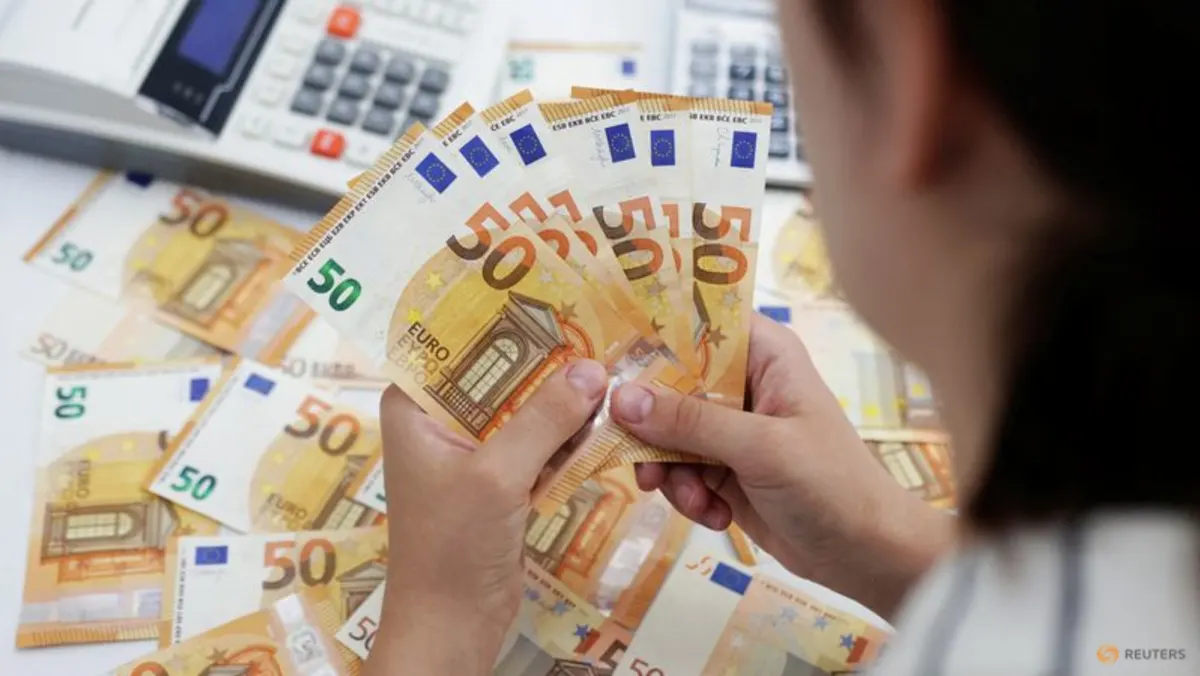Business
Euro Plunges to a 20-Year Low

On Tuesday, the euro plunged to a two-decade low as the latest spike in European gas prices increased recession fears in the region and rising interest rates drove up the US dollar.
It was a challenging time for many currencies even the Thai Baht. The euro’s drop of 1.2% EUR=EBS took it to its lowest level since 2002. Norway’s crown tumbled 1.2% as gas workers went on strike, while Japan’s yen was near 24-year lows again.
According to economists, the risk of Europe’s backsliding into a recession has grown as the price of natural gas surged by 17% in Europe and Britain, raising inflation at a faster pace.
After German Bundesbank chief Joachim Nagel attacked the European Central Bank’s plans to shield highly indebted countries from rising borrowing rates, worries about the ECB’s response gnawed at the sentiment.
With the energy picture worsening and risks to economic growth increasing notably, it will remain very difficult for the euro to rally in any meaningful way, said MUFG’s head of global markets research Derek Halpenny.
According to Reuters, a major dollar order was also placed in early trading, perhaps because U.S. markets were closed on Monday.
The euro’s fall as it broke through its 2017 low of $1.0340 was accelerated by a chain reaction caused by the energy price angst.
Due to the heavy volatility, the shared currency also fell to its lowest level against the Swiss franc EURCHF= since the Swiss National Bank abandoned its currency cap in 2015. In spite of the pound’s GBP=EBS own economic and political worries, it fell again below $1.20.
Read: Euro Millions Winning Numbers
The Australian dollar fell despite its first two consecutive 50 basis point rate hikes since 1994, which also cemented the fastest rate increase in the country’s history.
Following a high of $0.6895 earlier in the day, the Aussie AUD=D3 fell 1% to $0.6787. As of now, it is down nearly 7% for the year.
According to Rabobank FX strategist Jane Foley, there are now discussions about reverse currency wars because so many central banks are raising rates in such big increments to prevent their currencies from falling.
The situation could become concerning for a number of currencies, especially if the Fed hikes rates as expected in the coming months.
As a result of the dollar’s strength, the yen fell to its lowest level in 24 years. At its last price, it was thirteen dollars and seventy-nine cents. JPY=EBS
Since many of Eastern Europe’s countries rely on Russian gas, they were also feeling the heat. EM FX index MSCI has fallen to its lowest level since November 2020, with Euro-linked currencies like Hungarian forints HUF=, Polish zlotys PLN= and Romanian leu RON= all losing between 1.6-2.3% against the dollar.
Equiti Capital’s head macroeconomist Stuart Cole said “the threat of recession has once again grown stronger.”.




























